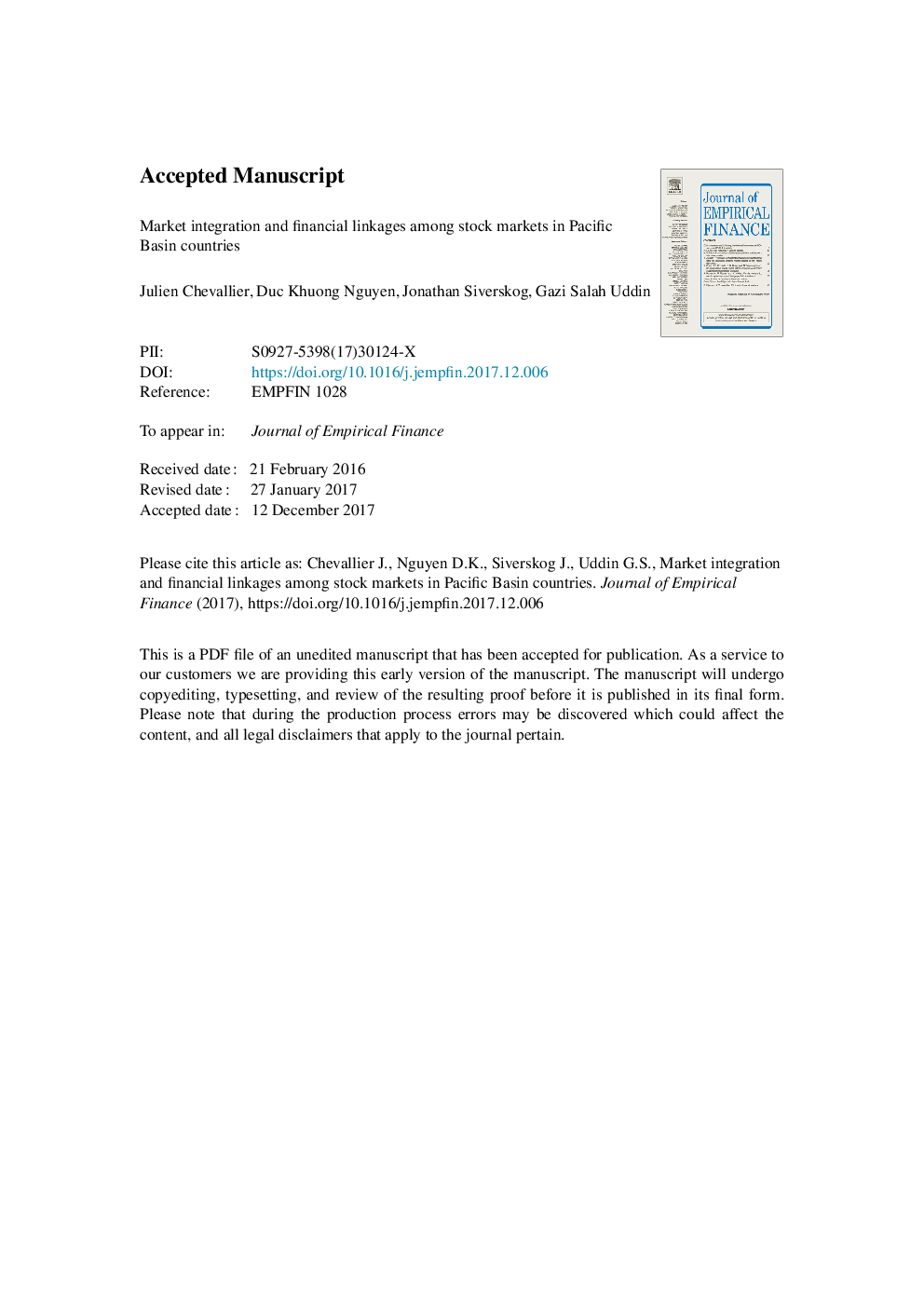| Article ID | Journal | Published Year | Pages | File Type |
|---|---|---|---|---|
| 7360563 | Journal of Empirical Finance | 2018 | 37 Pages |
Abstract
Financial development and globalization have significantly integrated stock markets around the world. This higher degree of interdependence and integration not only provides firms with higher access to international capital markets with lower cost of equity but also generates upward vulnerabilities for local markets due to their exposure to global and regional shocks. This article focuses on the level of interdependence across the Pacific Basin stock markets using the return spillover measure proposed by Diebold and Yilmaz (2009, 2012), given their increasing role in global trade and finance. We are also interested in investigating the effect of shocks affecting the United States and the Japanese stock markets as well as their transmission to the emerging markets. We mainly find that: (i) the interdependence of the emerging stock markets in the ASEAN countries is driven by a higher exposure to the US shocks than to shocks affecting the developed economies of East Asia, and (ii) the cross-market linkages in the Pacific Basin region have become stronger over time, which may reduce the benefit of regional diversification strategies and expose the countries of the region to increasing contagion risk. These results have important implications for public policies related to the issue of regional and global financial integration.
Keywords
Related Topics
Social Sciences and Humanities
Economics, Econometrics and Finance
Economics and Econometrics
Authors
Julien Chevallier, Duc Khuong Nguyen, Jonathan Siverskog, Gazi Salah Uddin,
